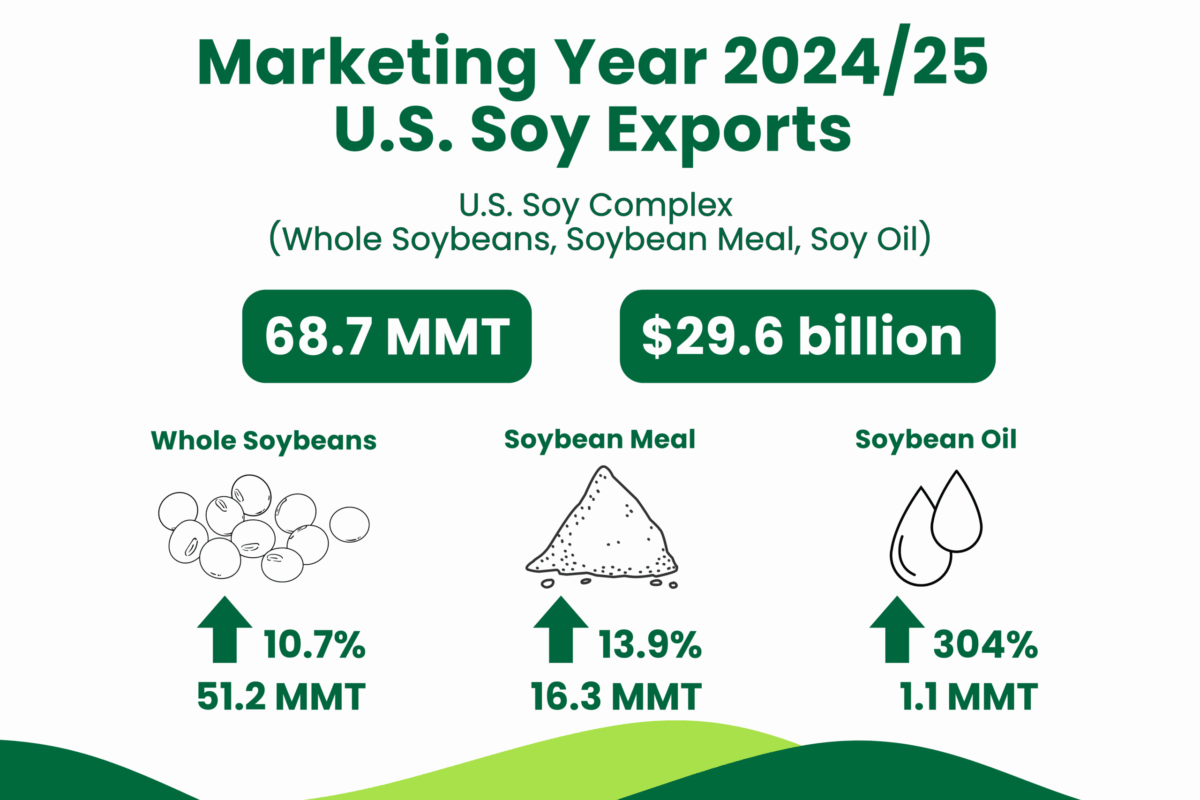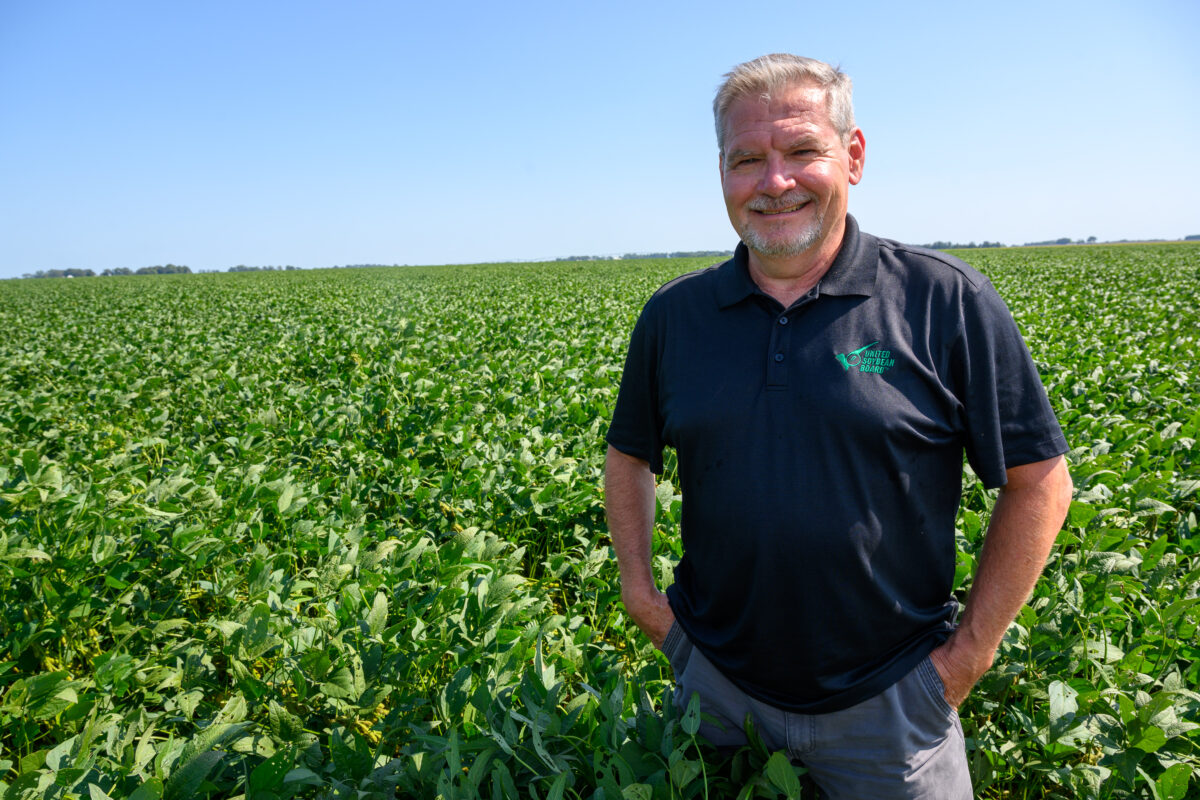African Aqua Entrepreneurs Catch Protein Demand

Graduates of WISHH’s USB-sponsored aquaculture internship program receive the training certifications from WISHH Program Committee Chair Roberta Simpson Dolbeare, Treasurer Bob Haselwood and WISHH strategic Partner Evans Danso. The program is building a new generation of leaders for the industry.
See the results of the United Soybean Board’s support of ASA/WISHH’s aquaculture internship program in sub-Saharan Africa, where fish feast on soy-based feeds.
The United Soybean Board’s support of the American Soybean Association’s World Initiative for Soy in Human Heath’s global aquaculture strategy cultivates new opportunities to feed U.S. Soy to fish, as it helps fill the growing demand for more aquaculture professionals in sub-Saharan Africa. Aquaculture production in sub-Saharan Africa has grown by 11% annually on average since 2000 — almost twice as fast compared with the rest of the world.
WISHH’s strategic partners, such as Flosell Farms CEO Evans Danso, are key to catching this demand. Danso’s West African farm uses 60% soy feeds. In 2022, it produced 16 million fingerlings and 1,300 tons of full-grown tilapia. He is developing an outgrower scheme so the farm can support others who also want to raise fish such as tilapia, which is native to Africa. According to the Food and Agriculture Organization of the United Nations, tilapia is now the second most popular farmed fish globally and one of the most traded seafood commodities. Both rural and urban consumers eat tilapia as an affordable source of protein.
Danso’s riverside farm is home to WISHH’s USB-supported aquaculture internship program that offers leadership as well as practical skills for careers that contribute to global food security.
“Let’s feed the world some protein,” Danso said as he encouraged the interns at a May 2023 class graduation ceremony.

WISHH and Flosell Farms tested the initiative in 2022 with three interns who already had college degrees. All quickly landed jobs. More than 50 applicants from multiple countries competed for spots in WISHH’s spring 2023 training session. WISHH has leveraged the USB funding with the USDA Market Access and Agricultural Trade Promotion programs. WISHH sends global aqua experts to the farm, where they lead trainings and provide production advice.
The hands-on experience is prized by interns like Mbonea Assery Mdoe, who is the co-founder of Aqua-Farmers Hatcheries in Tanzania. “It’s been an incredible journey filled with invaluable experiences, personal growth, and new connections,” shared the entrepreneur. “I’m immensely grateful to the amazing team and excited to bring these newfound abilities to the next chapter of my professional journey in the aquaculture industry.”
Fellow intern Esther Anim noted, “I’ve learned about fish health management, combating fish diseases and how to better produce fish. Aquaculture is important to Ghana because not only is it going to improve fish production, but it will also give employment to the youth.”
Today, more than 60% of Africa’s population is under the age of 25, according to the World Economic Forum. By 2030, young Africans are expected to constitute 42% of global youth. Such growth drives demand for protein and offers careers for the interns who leave with positive experiences with U.S. Soy and WISHH as a result of their internship.
Sources:
According to a 2022 Nature Food research article, affordable quality feeds are one of the challenges facing sustainable aquaculture development in sub-Saharan Africa. Since 2000, aquaculture production in sub-Saharan Africa has grown by 11% annually on average — almost twice as fast compared with the rest of the world, with a few countries growing at 12%-23% per year.
FAO Globefish: https://www.fao.org/in-action/globefish/fishery-information/resource-detail/en/c/338148/



